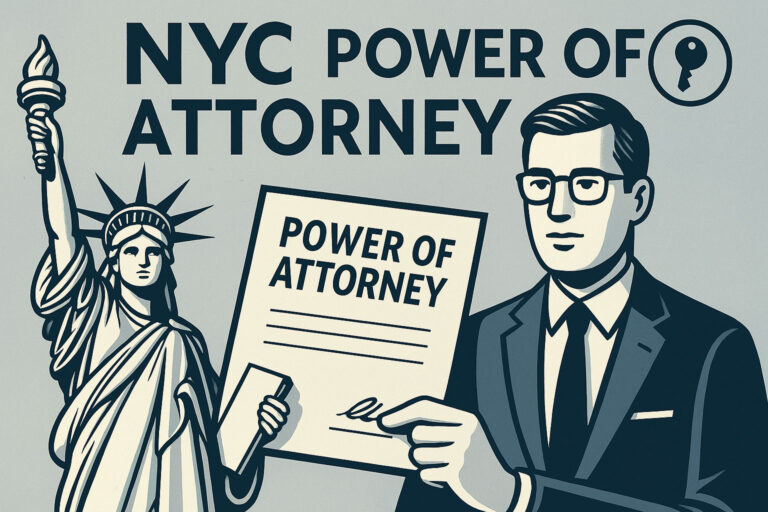
Estate planning tips for your blended families
Estate Planning Tips for Your Blended Family in New York: Ensuring Harmony and Protecting Everyone’s Future Estate planning can be complex under any circumstances, but


Home » Lawyer for power of attorney

Estate Planning Tips for Your Blended Family in New York: Ensuring Harmony and Protecting Everyone’s Future Estate planning can be complex under any circumstances, but

Ethical Considerations in Estate Planning for New York Attorneys: Upholding Integrity and Serving Clients’ Best Interests Estate planning involves deeply personal and sensitive matters, requiring

Estate Planning for Same-Sex Couples in New York: Ensuring Legal Protections and Honoring Your Relationship With the advent of marriage equality, same-sex couples in New

New York Trust & Estates Legacy Lawyers: Securing Your Family’s Future for Generations Planning for the future involves more than just accumulating wealth; it’s about

Safeguarding Your Legacy: Who Should Keep Your Last Will and Testament in New York? Your last will and testament indicate how you want the assets

Estate Planning for Single Individuals in New York: Protecting Your Assets and Ensuring Your Wishes Are Honored While estate planning is often associated with married

Estate Planning for Digital Assets in New York: Managing Your Online Legacy In today’s increasingly digital world, our lives are intertwined with online accounts, social

Expert’s Guide: Estate Planning in New York – Secure Your Future Welcome to Morgan Legal Group P.C., your dedicated legal resource for estate planning in

Updating Your Estate Plan in New York: A Regular Check-Up for Your Legacy Creating an estate plan is a significant step towards protecting your assets

Is Life Distracting You from Seeing an Estate Planning Attorney in NYC? Reclaim Your Future Today Life in New York City moves at a relentless

Finding the Right Estate Planning Attorney Near You in the 10025 ZIP Code: Securing Your Future Planning for the future involves many important considerations, and

Finding a Last Will Lawyer in Staten Island, New York: Protecting Your Family’s Future Creating a last will and testament is one of the most

Finding the Right Will Lawyer in Queens: Protecting Your Legacy and Ensuring Peace of Mind Creating a will is one of the most important steps

Guardianship for Minor Children in New York: Protecting Their Future and Ensuring Their Well-being As a parent, ensuring the safety and well-being of your children

Estate Tax Planning in New York: Minimizing Tax Burdens and Preserving Your Legacy Estate tax can significantly impact the amount of wealth your heirs ultimately

Reverse Mortgages in New York: A Comprehensive Guide to Understanding the Benefits, Risks, and Impact on Estate Planning A reverse mortgage is a loan available

Probate Avoidance Strategies in New York: Minimizing Court Involvement and Streamlining Estate Administration Probate, the legal process of validating a will and administering an estate,

Healthcare Proxies and Living Wills in New York: Making Your Wishes Known and Ensuring Respect for Your Healthcare Decisions Planning for your future encompasses many

Powers of Attorney in New York: Planning for Incapacity and Protecting Your Future Life is unpredictable, and planning for the unexpected is a responsible and

Hospice Care and Estate Planning: Why You Need an Attorney in New York When facing a terminal illness, making the decision to enter hospice care

Healthcare Proxy and Living Will: Planning for Your Medical Future in New York Planning for your future involves more than just financial matters. It also

Understanding the Role of Trusts in New York Estate Planning: A Comprehensive Guide In New York, estate planning involves more than just creating a will.

Estate Planning Cost in New York: A Comprehensive Guide Planning for the future is a crucial step in protecting your assets and ensuring your loved

Creating a Last Will and Testament in New York: A Comprehensive Guide Planning for the future is a responsible act, and one of the most

Charitable Trusts in New York: Giving Back While Planning Your Estate Many individuals in New York are passionate about supporting charitable causes. A charitable trust

Medicaid Trusts in Queens, New York: Protecting Your Assets and Securing Your Future Navigating the complexities of Medicaid eligibility in Queens, New York, can be

Understanding Trusts and Wills in New York: A Comprehensive Guide Planning for the future can feel overwhelming, especially when it involves complex legal instruments like

Navigating Your Future with a Trust and Estate Lawyer in New York Planning for the future involves many important decisions, but few are as critical

Estate Planning Attorney Near Me 10010: Securing Your Future in Midtown Manhattan Planning for the future may feel overwhelming, but it’s one of the most

NYC Power of Attorney: A Complete Guide to Protecting Your Future In the bustling city of New York, planning for the unexpected is crucial. A
Ⓒ 2025 - All Rights Are Reserved | Privacy Policy | Estate Planning Attorney NYC | Sitemap